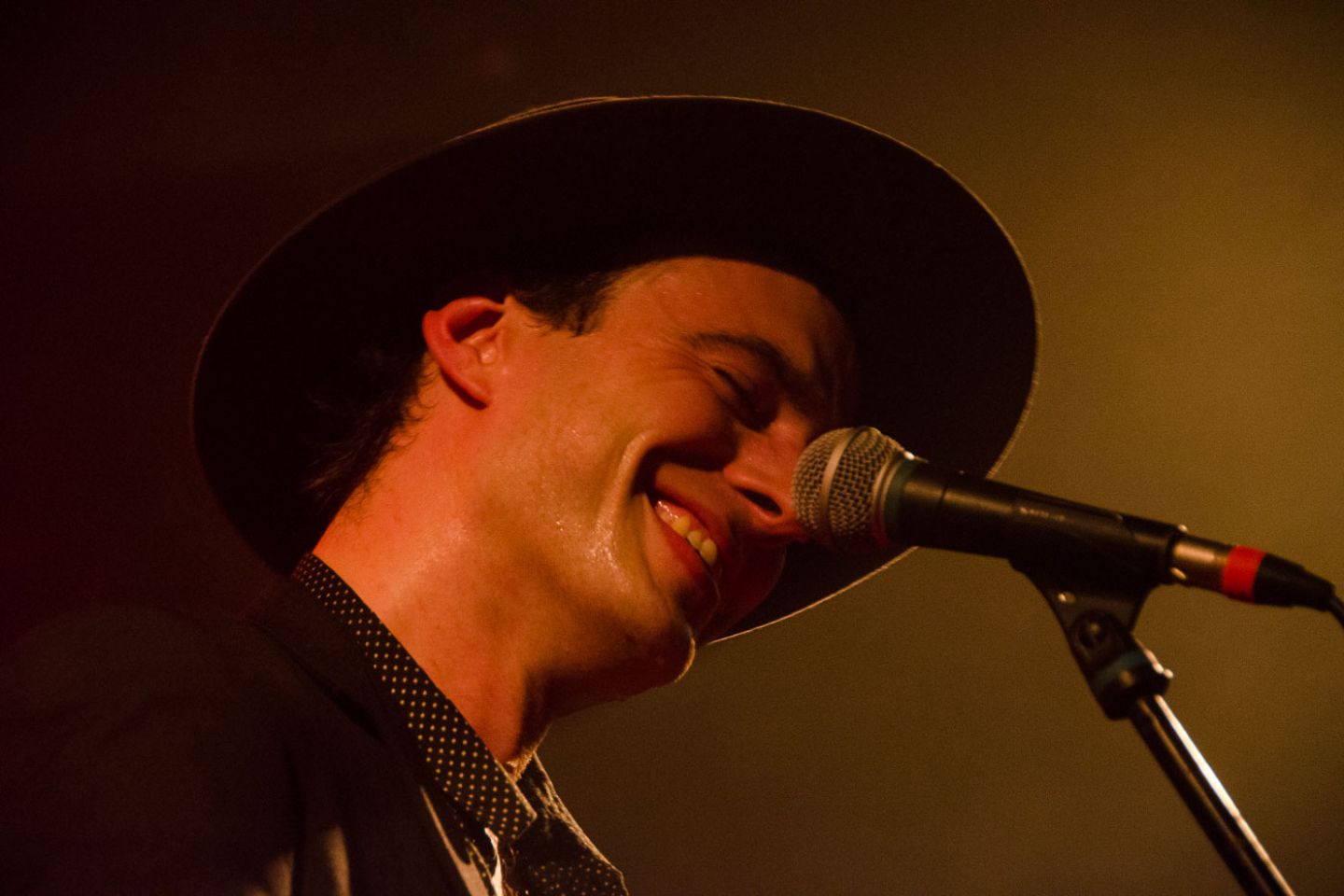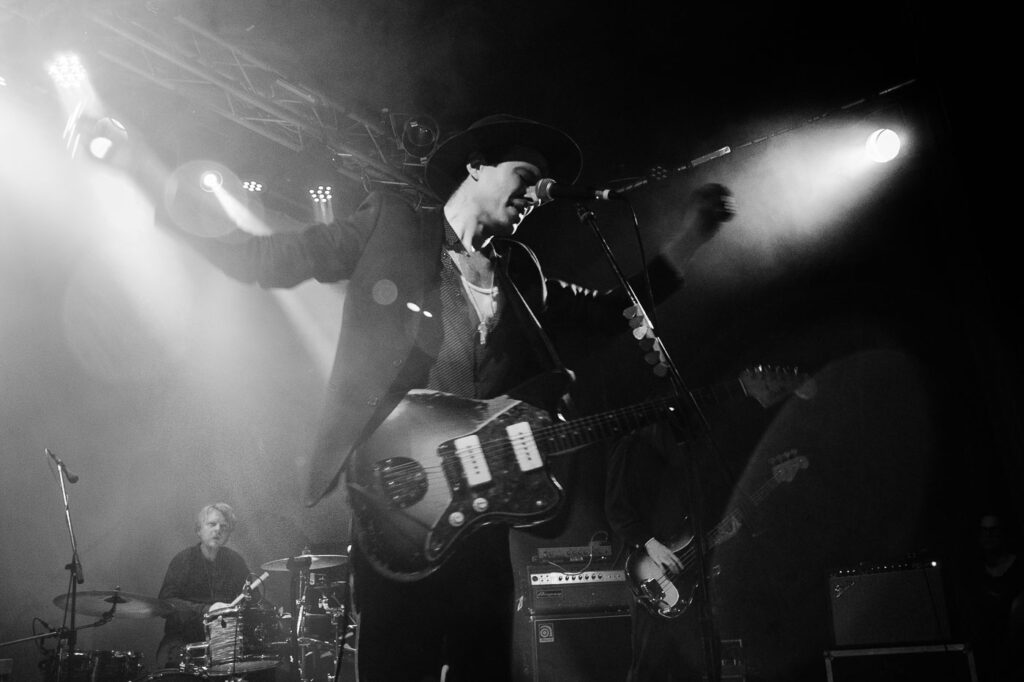
The evolution of an artist: Finn Andrews (The Veils)
Leggi l’intervista in Italiano qui
It seems just like yesterday the videoclip of Lavinia broke into our lives and brought The Veils and Finn Andrews voice to our ears, but it actually happened twenty years ago already.
While waiting for his upcoming concert in Milano, where Finn will present the Veils hits in an intimate solo performance, we asked him a few questions.
Finn, you’re about to return to Italy seven years after the last time you stopped by with the Total Depravity tour. Is there a thing you particularly like of playing – or just simply being – in Italy?
“Italy has always been an important place for this band. It was the first country to take an interest in us back in the Lavinia days, and my ex-girlfriend was from Florence, so I used to spend a lot of time there. Quite a lot of Total Depravity was written in Florence and very much inspired by my time there. Truly, I cannot wait to be back!”
Over the past few years you have released both your debut solo album, One Piece at the Time, and a new record with The Veils …And Out of the Void Came Love. The concert in Milano next December 7th will be The Veils solo performance, that sounds a bit like a mix of your artistic embodiments: what type of experience shall the crowd expect?
“It’s really an opportunity to play these songs as they first arrived: just piano and voice, stripped back as far as they will go. I’m looking forward also to playing a lot of old Veils songs, like the ones that comprise our first album The Runaway Found. These songs often don’t suit the band so much anymore, but they still work really well with just me on my own. There’s a lot of songs now after all these years!”
How would you describe the difference between the Finn Andrews leader of The Veils and the Finn Andrews solo artist? What different creative impulse is behind those two productions?
“It’s exactly the same impulse to be honest, but The Veils has a far longer and more complicated history which it’s nice to step away from from time to time. I feel very free working under both banners, but there’s an expectation that’s there with The Veils which isn’t there with my solo work and that can be quite exciting too.”
The last two albums by The Veils sound really black and white, darkness and light: the rough, gloomy sounds of Total Depravity are openly in contraposition with the soothing use of piano in …And Out of the Void Came Love. What changed, what brought you to move from writing dark and yet sexy songs of nightmares, demons, crocodiles and bones that glow at night to the breath of freshness and light that’s love in all its forms?
“I think leaving London had a lot to do with it. I was living a very unhealthy, very self-centered existence for a long time, and moving to New Zealand sort of woke me up from that. Becoming a father was an enormous transformation also. I think I write about love in a very different way now – it was always rather mysterious to me in the past, both love for myself and love for others. But my daughter removed that mystery immediately, and so I suppose I no longer use my songs to figure that concept out in quite the same way. She showed me how simple a thing love can be, I suppose.”

Since the debut album in 2004, The Runaway Found, The Veils changed sound but always maintained a certain unique and recognisable style across records. Although, I assume, you might have a reason to be attached to each and every song you have written during two decades of career, what is that only song you are fond and proud of the most? Why?
“I think my whole “career” if you want to call it that has basically been a process of atonement for the wrongs I feel I’ve committed in the past. I was signed to Rough Trade when I was 17, and I felt like such an absolute fraud, I made Nux Vomica to try and correct all the mistakes I felt I made the first time around. That has continued to be how I think of it, for better or worse. I’m just trying to learn and get better at what I do every time, and so I rarely stop to feel particularly proud of anything I’ve done. I just want to one day know what the fuck I’m doing, even for a moment.”
Let’s take a short trip down memory lane, all the way to your first (I think) concert in Italy in 2004, at Velvet Rock Club in Rimini: you were touring with Fiery Furnaces and the sudden success of Lavinia made you become the main act instead of being the opening band that evening. If you could have a conversation with that younger version of yourself, on the verge of global recognition, what would you tell him?
“Oh God, I’d have a lot of things to say to that young man. I think the first thing would be to try and stop taking yourself so seriously and enjoy yourself for a bloody change. I was a very tormented character, really. I should have tried to have a lot more fun.”
I feel I could keep going with the questions, discuss about the recurring comparison with Nick Cave or debate about the meaning of life through your songs, but as last question I’d like to ask you something more personal and maybe a bit challenging: what’s happiness according to you?
“The older I get, the less I feel the concept of happiness is of any real use. It’s a good way to describe children – they are truly happy, or at least they should be. But as we age things get complicated, and that word seems to lose its meaning in any real sense. ‘Contentment’ seems to me a better word, as it’s less about searching and the acquisition of things and more about an inner sense of calm and strength. Contentment is what I aim for most of all.”
Thank you very much for your time spent answering our questions, we’re looking forward to see you in Milano next month!
Archive pictures by Francesca Garattoni